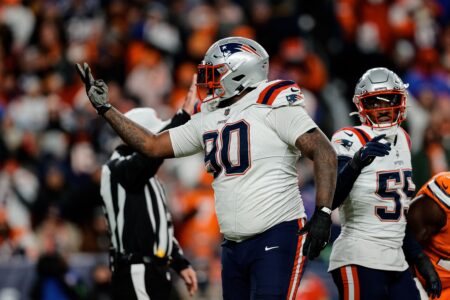...
The difference between being really good or really bad on kickoffs or punts (either side of the ball) is an average of a few yards per play.
So the "1/3" of the game that is STs -- if you take out the performance of the kicker/holder/longsnapper, just what fraction of the game is it? I'm thinking in the 15% range ...
This is a really interesting question and one that no doubt can be answered as the statistics gathered on NFL football begin to rival those collected in MLB.
I'm sure other analysis has been done, but the only analysis that I have reviewed related to Special Teams play is done by Bob Carroll, Pete Palmer and John Thorn in
"The Hidden Game of Football: The Next Edition," published in 1998. I have gone on about the strengths and weaknesses of this book in other posts out here, so I'll keep this short and say that, IMHO, it's a great start, but incomplete for both practical and statistical reasons.
But, that said, it is the only analysis I've read that gets to part of the question asked by Fencer.
They devote an entire Chapter to analyzing Special Teams' play, which they narrowly define as trying to determine the Advantage or Disadvantage gained/lost by a team because of their play on both sides of the ball on Punts and Kickoffs.
After a lengthy analysis, which I encourage you to read, they conclude that field position on Punts and Kickoffs by Special Teams (as narrowly defined immediately above) was worth a total of 33.4 points over the course of the season to the team that played best in this phase of the game (+2.1 points per game) and cost 48.9 points to the team that played it worst (-3.1 points per game), so a gap between the best and worst teams of 82.3 points in a single season, or, with rounding, 5.2 points per game.
That suggests two things:
One, it supports Fencer's intuition that
"The difference between being really good or really bad on kickoffs or punts (either side of the ball) is an average of a few yards per play."
Two, it points out that teams with dominant offenses and/or defenses are less dependent on Special Teams, on average (!), than other teams (I emphasize "on average" because obviously a big special teams play can still impact a close game). For example, in the NFL last season, the median differential between "Points For" and "Points Against" was around +10 points, in total (ranging from +169 for the Saints to -261 for the Rams). However, the Standard Deviation around the median is very high (119.3) suggesting what every fan intuitively understands, that many factors are at work here. But, it does clearly suggest that Special Team play (as defined above) can have a larger bearing on the performance of teams without a dominant offense or defense.
I'm not endorsing this as Gospel, but it makes some intuitive sense to me. As a range, a two or three point a game advantage or disadvantage because of performance on Kickoffs and Punts by Special Teams play feels right to me. The Average number of Points scored by an NFL team last year was 343.5. Carroll's "best" team with a 33.4 point advantage would have benefited roughly 10% (9.7%) from Special Teams play, without taking into account FG's kicked.
But, assigning percentages for Offense, Defense and Special Teams would have to vary by team. Teams that put up relatively few points with their Offense could still have a better record than that would suggest because of the play of their Special Teams.
Carroll leaves the impact of Field Goals out of his analysis because he analyzes the FG decision differently, spending many pages to develop the logic that coaches far too often opt to kick when they should "go for it" according to the statistics. In other words, it is his view that putting up three points is frequently the wrong decision and, therefore, that simply adding up points off of FG's would misrepresent the role that this aspect of Special Teams plays.
















